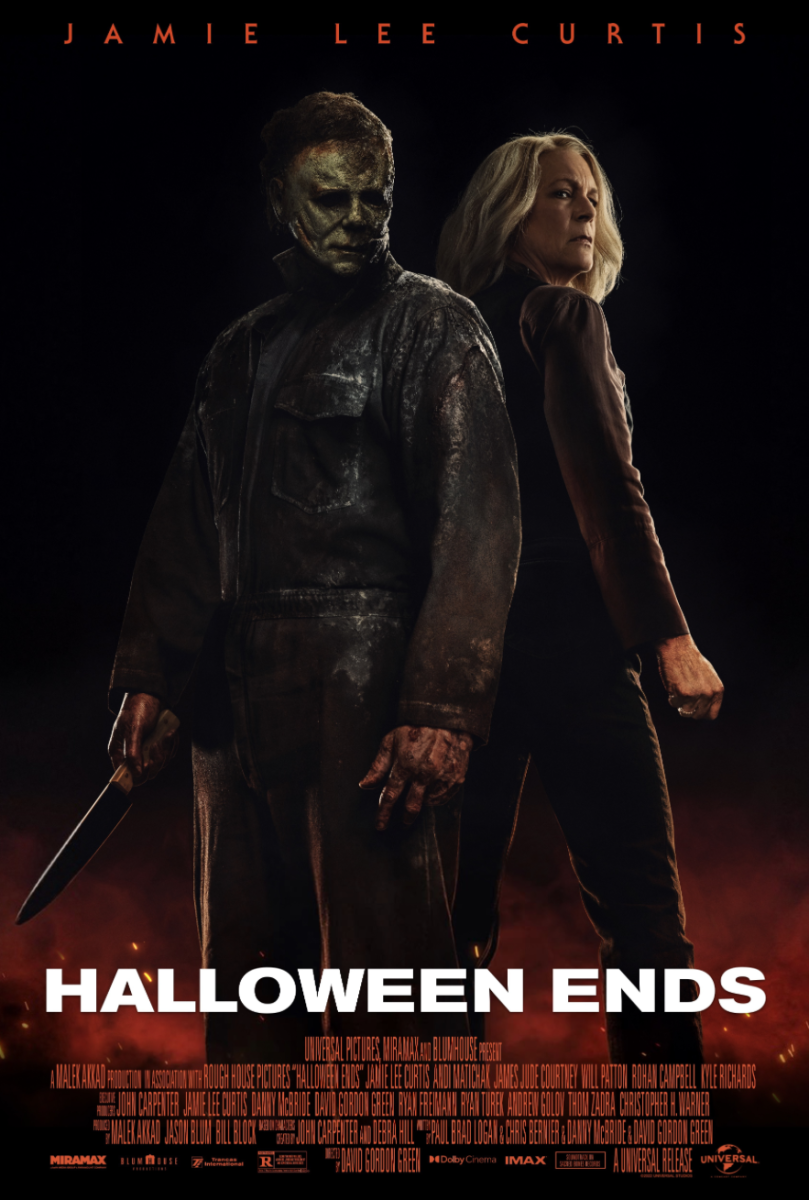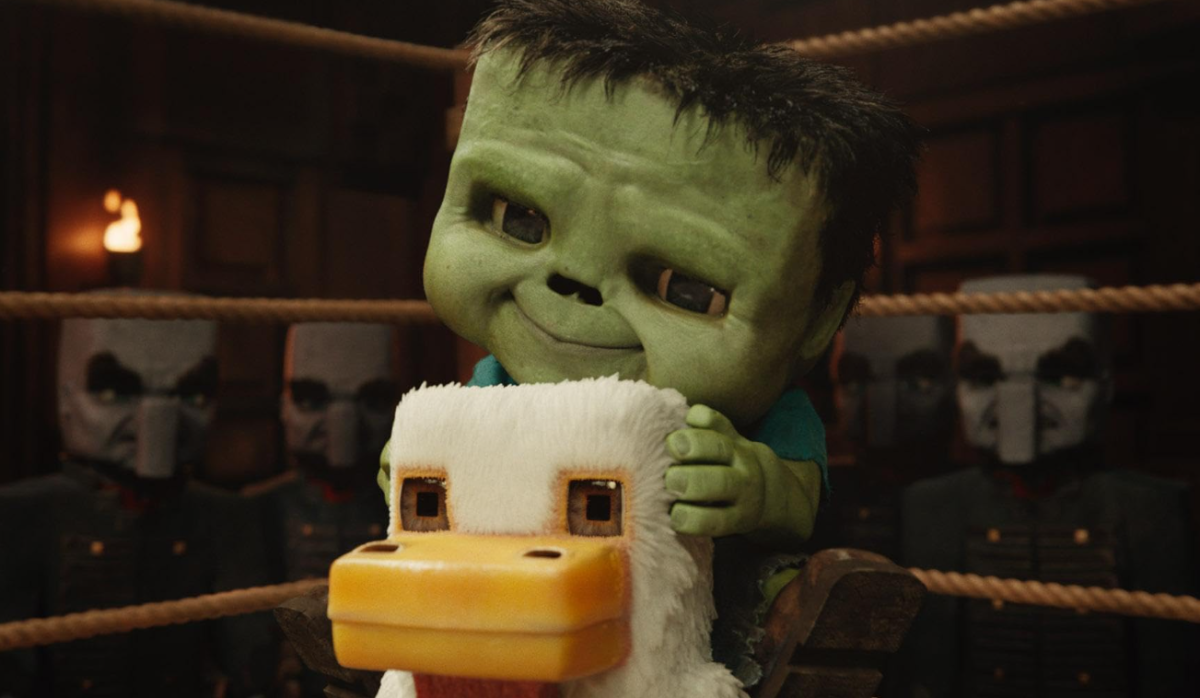Rating: 7/10
The embodiment of evil returns for its final film in Miramax and Blumhouse’s “Halloween” trilogy.
“Halloween Ends” serves as the 13th installment in the franchise, but that’s not to say it picks up the story of the 12 other movies. Without getting into the convoluted timeline, “Halloween Ends” retcons over all other “Halloween” movies outside its own trilogy, besides the original 1978 film.
The trilogy as a whole has done a surprisingly good job of rebooting the franchise in a way that pays respect to the original without copying it line for line. Both 2018’s “Halloween” and 2021’s “Halloween Kills” expands off the unique concept of a faceless evil first created by John Carpenter in 1978, while still maintaining its connections and recapturing what made Michael Myers’ initial appearance so iconic.
The film, like the previous two, is directed by David Gordan Green and stars the original actors, Jamie Lee Curtis as the babysitter turned serial killer hunter Laurie Strode, and Nick Castle as the iconic faceless Michael Myers.
Curtis, after being involved off and on within the franchise for 44 years now, still takes her role seriously, and brings a certain enjoyable charm to the screen which the “Halloween” movies could not survive without. Castle’s performance as Myers is as cold and as menacing as always, and his physical acting underneath the mask and mechanic suit remain unmatched.
Tonally however, “Halloween Ends” takes things in a slightly different direction. Instead of putting its main focus on its infamous villain, the movie spends most of its screen time on the protagonist, Laurie Strode, and what remains of her shattered family as they deal with the trauma and loss they’ve sustained in the past few years.
A significant portion of the film is disconnected to anything that Michael Myers is currently up to, and the mask-wearing maniac himself doesn’t appear for quite a long time in the film.
This isn’t to say the film is boring or uneventful, but I certainly wasn’t going to the theater expecting a serious drama about overcoming tragedy.
Nevertheless, a slasher flick is a slasher flick, and this one still manages to deliver even more blood and guts than the previous two, despite Myers’ reduced screen time. In fact, every “Halloween” trope manages to make its way into the film, including: characters walking off fatal injuries, characters making really bad decisions in peril, babysitters and clunky dialogue.
By the end of it, “Halloween Ends” is able to wrap up every character’s story in a way in which they deserve, and finishes the film on a satisfying note. Hopefully Hollywood, after making a movie where the characters spend most of their time moving on from Michael Myers, will be able to do the same, and leave the franchise to rest after it has been so neatly wrapped up.
But studios are willing to continue to milk any kind of film as long as it keeps making money, and “Hollywood Ends” proved that Michael Myers can still fill up a movie theater, even 44 years after his debut. The film made over $40 million in its opening weekend, putting it at first in the box office.
Critically however, “Halloween Ends” has been met with mixed reviews, and currently sits with a 39% on rotten tomatoes and a 5/10 on IMDb.
All in all, this film isn’t perfect. It tries to do a lot at once: add more complexity to all its protagonists, conclude the Michael Myers story and provide some secondary villainy in his absence. Some of it falls through and doesn’t lead anywhere, but I cannot deny the fact that, in the contemporary Hollywood world of cheap reboots, “Halloween Ends” pulls through, and does its preceding films justice while successfully playing the conclusive note of the Michael Myers saga.










